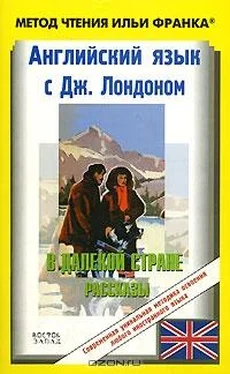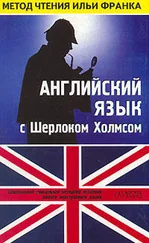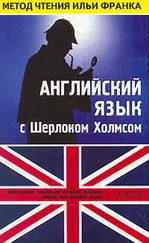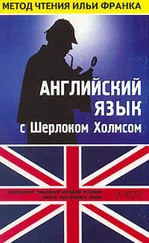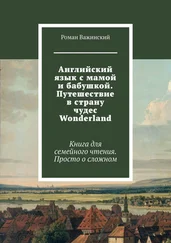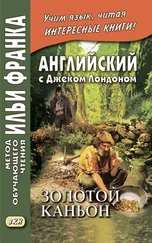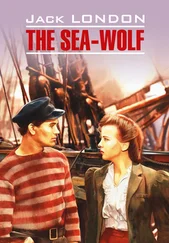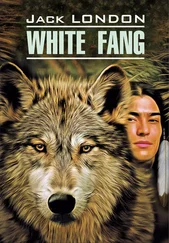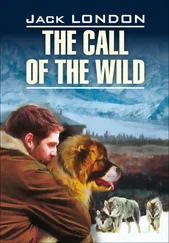concern [kqn'sWn], barbaric [bR'bxrIk], obedience [q'bJdIqns]
He did not complain. It was the way of life, and it was just. He had been born close to the earth, close to the earth had he lived, and the law thereof was not new to him. It was the law of all flesh. Nature was not kindly to the flesh. She had no concern for that concrete thing called the individual. Her interest lay in the species, the race. This was the deepest abstraction old Koskoosh's barbaric mind was capable of, but he grasped it firmly. He saw it exemplified in all life. The rise of the sap, the bursting greenness of the willow bud, the fall of the yellow leaf — in this alone was told the whole history. But one task did Nature set the individual. Did he not perform it, he died. Did he perform it, it was all the same, he died. Nature did not care; there were plenty who were obedient, and it was only the obedience in this matter, not the obedient, which lived and lived always. The tribe of Koskoosh was very old. The old men he had known when a boy, had known old men before them. Therefore it was true that the tribe lived, that it stood for the obedience of all its members, way down into the forgotten past, whose very resting-places were unremembered. They did not count; they were episodes. They had passed away like clouds from a summer sky. He also was an episode, and would pass away.
Nature did not care (природа безразлична: «не заботилась, не волновалась»). To life she set one task, gave one law (жизни она поставила одну задачу, дала один закон; to give — дарить, давать, вручать ). To perpetuate was the task of life, its law was death (/навсегда/ сохраняться было задачей жизни, ее законом была смерть). A maiden was a good creature to look upon (девушка была хорошим созданием /для того, чтобы/ смотреть /на нее/), full-breasted and strong (полногрудой и сильной), with spring to her step and light in her eyes (с живостью/энергичностью в походке и светом в глазах). But her task was yet before her (но ее задача была еще впереди: «перед ней»). The light in her eyes brightened (свет в ее глазах разгорается), her step quickened (ее походка убыстряется), she was now bold with the young men (она была то смелая с юношами), now timid (то робкая), and she gave them of her own unrest (и она передавала им свое собственное волнение; rest — покой; unrest — беспокойство ). And ever she grew fairer and yet fairer to look upon (и постоянно она становилась красивее и еще красивее, /чтобы/ смотреть на нее = на вид), till some hunter (пока какой-нибудь охотник), able no longer to withhold himself (не способный более сдерживаться), took her to his lodge to cook and toil for him and to become the mother of his children (брал ее в свой вигвам, /чтобы/ готовить и трудиться для него, и стать матерью его детей). And with the coming of her offspring her looks left her (и с приходом ее отпрыска/ребенка красота покидала ее; look — вид, внешность, облик ). Her limbs dragged and shuffled (ее конечности волочились и шаркали), her eyes dimmed and bleared (ее глаза тускнели и затуманивались), and only the little children found joy against the withered cheek of the old squaw by the fire (и только маленькие дети находили радость у морщинистой щеки этой старой скво; squaw — скво, индианка ). Her task was done (ее задача была выполнена). But a little while (но скоро; in a little while — скоро ), on the first pinch of famine or the first long trail (при первой атаке голода или первом длинном переходе; to pinch — щипать; pinch — щипок; сжатие, сужение; крайняя нужда; стесненное положение ), and she would be left (и она будет оставлена), even as he had been left (точно так, как он был оставлен = как оставили его), in the snow, with a little pile of wood (в снегу, с маленькой кучкой дров). Such was the law (таков был закон).
maiden [meIdn], perpetuate [pq'peCueIt], withered ['wIDqd], squaw [skwL]
Nature did not care. To life she set one task, gave one law. To perpetuate was the task of life, its law was death. A maiden was a good creature to look upon, full-breasted and strong, with spring to her step and light in her eyes. But her task was yet before her. The light in her eyes brightened, her step quickened, she was now bold with the young men, now timid, and she gave them of her own unrest. And ever she grew fairer and yet fairer to look upon, till some hunter, able no longer to withhold himself, took her to his lodge to cook and toil for him and to become the mother of his children. And with the coming of her offspring her looks left her. Her limbs dragged and shuffled, her eyes dimmed and bleared, and only the little children found joy against the withered cheek of the old squaw by the fire. Her task was done. But a little while, on the first pinch of famine or the first long trail, and she would be left, even as he had been left, in the snow, with a little pile of wood. Such was the law.
He placed a stick carefully upon the fire (он положил палку осторожно в огонь) and resumed his meditations (и продолжил свои размышления). It was the same everywhere, with all things (так было повсюду, со всем). The mosquitoes vanished with the first frost (комары/москиты пропадали с первым морозом). The little tree-squirrel crawled away to die (маленькая древесная белка уползала прочь /чтобы/ умереть). When age settled upon the rabbit it became slow and heavy (когда возраст подходил к кролику, он становился медлительным и тяжелым), and could no longer outfoot its enemies (и не мог более унести ноги /от/ своих врагов). Even the big bald-face grew clumsy (даже большой /медведь/ с белым пятном на морде становится неповоротливым; bald — с белым пятном /о животных/ ) and blind (и слепым) and quarrelsome (и сварливым), in the end to be dragged down by a handful of yelping huskies (/чтобы/ в конце быть стащенным вниз = сбитым горсткой визжащих собак; husky — лайка ). He remembered how he had abandoned his own father on an upper reach of the Klondike one winter (он вспомнил, как он покинул = бросил своего собственного отца в верховье Клондайка одной зимой; upper reach — участок верхнего течения реки ), the winter before the missionary came with his talk-books and his box of medicines (той зимой, перед тем /как/ пришел миссионер со своими молитвенниками и своим ящиком лекарств). Many a time had Koskoosh smacked his lips over the recollection of that box (много раз Коскуш причмокивал губами при воспоминании о том ящике), though now his mouth refused to moisten (хотя сейчас его рот отказывался увлажняться = у него не было уже слюны). The «painkiller» had been especially good («болеутолитель» был особенно хорош). But the missionary was a bother after all (но миссионер был обузой/беспокойством для всех), for he brought no meat into the camp (потому что он не приносил мясо в лагерь), and he ate heartily (и он ел охотно/усердно), and the hunters grumbled (и охотники ворчали). But he chilled his lungs on the divide by the Mayo (но он застудил легкие на водоразделе около Мэйо), and the dogs afterwards nosed the stones away and fought over his bones (и собаки потом растолкали носом камни = разбросали камни и подрались из-за его костей).
Читать дальше
